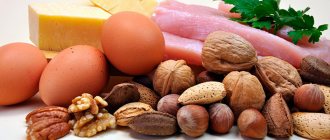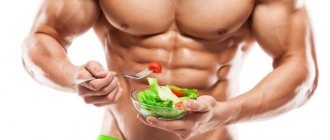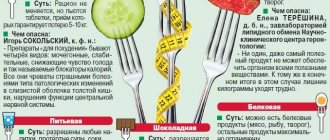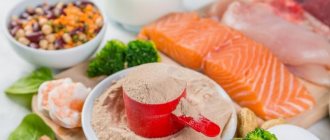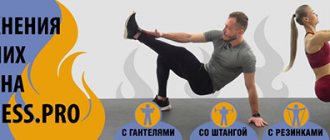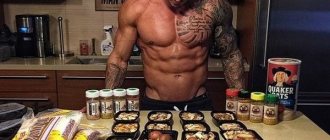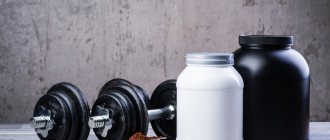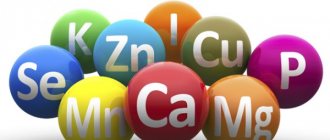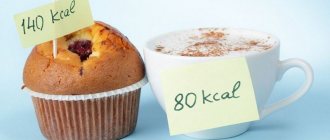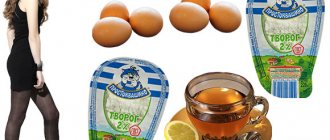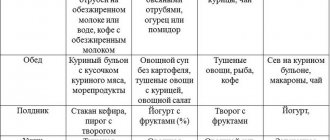A protein diet for athletes is as important as properly organized training sessions. A protein-based nutritional system helps you lose weight, build muscle mass, remove fat from tissues and organs, and achieve athletic results without harm to your health.
- We recommend reading: athlete nutrition to stay in shape
The essence of the method
To increase physical endurance and achieve high results without harm to health, it is important to create the right balance of proteins, fats and carbohydrates entering the body.
Sport goes well with a protein diet, which is often recommended for athletes. Its essence lies in a person’s consumption of a sufficient amount of protein, which represents the main energy supply when building muscle mass.
Protein is a catalyst for biochemical processes in the body, a building material for cells, the basis of tissues and organs, skeletal muscles and receptors. It contains important amino acids that are not fully synthesized in the human body.
To gain the desired weight, it is recommended to consume up to 5 g of protein per 1 kg of weight.
Vegetable protein is absorbed only by 70%, and therefore it is useful for vegetarians to consume more nuts, legumes, vegetables and seeds as a natural source of protein.
Secrets of a sports protein diet:
- consume proteins of animal and plant origin;
- use natural products, seasonal vegetables and fruits in the diet;
- Eat prepared dishes immediately and avoid long-term storage;
- chew food thoroughly;
- drink liquid 20 minutes before meals and 30 minutes after finishing the meal;
- coordinate your eating regimen with your workouts.
Be sure to take vitamin complexes to increase the performance of systems and organs during increased stress on the body. Dietary food should not cause weakness and a strong feeling of hunger.
Nutrition for gaining muscle mass
Professional athletes know that nutrition for gaining muscle mass is not just about taking sports supplements (even the most effective ones, such as creatine and whey protein). Essentially, without enough calories, proteins, carbohydrates and vitamins in your daily diet, muscles simply will not grow, no matter how correct and effective strength training is.
In addition, it is a mistake to consider nutrition for weight gain solely in the form of enhanced protein nutrition. Despite the fact that proteins are indeed necessary for muscle growth, carbohydrates are an equally important component of the diet for weight gain - let us recall that it is carbohydrates (in the form of glycogen) that are the main source of energy for muscle function. Nutrition for weight is following a hypercalorie diet with an emphasis on increased amounts of proteins and proper carbohydrates in the diet.
Also for weight gain, it is important to monitor the presence of vitamins and minerals in the diet - in particular, sufficient amounts of zinc and magnesium, which are critical for testosterone synthesis and, ultimately, for muscle growth
Nutrition for weight is following a hypercalorie diet with an emphasis on increased amounts of proteins and proper carbohydrates in the diet.
Also for weight gain, it is important to monitor the presence of vitamins and minerals in the diet - in particular, sufficient amounts of zinc and magnesium, which are critical for testosterone synthesis and, ultimately, for muscle growth
Diet for muscle growth: calorie calculation
Creating a diet for gaining muscle mass begins with determining the optimal caloric intake of all foods consumed. Fitseven has already written that muscle growth requires exceeding the daily calorie intake by about 15-20% - a man aged 25-30 years, about 180 cm tall and weighing 70-73 kg needs at least 2700-3000 kcal daily.
Separately, we note that the sources of carbohydrates and fats in the diet for gaining muscle mass should be as “correct” as possible - otherwise, excess calorie intake in the diet will easily lead to a gain of predominantly fat mass, and not at all to muscle growth. The timing of meals relative to training also plays a significant role.
Diet options
Protein diets are developed by specialists. But it is important for you to decide on your goal. Do you want to immediately build muscle mass, or do you first want to lose extra pounds?
Pierre Dukan's technique
Today, the dietary nutrition system of Pierre Dukan has become widely known among protein diets for athletes. The essence of the method is to carry out dietary nutrition over 4 stages.
Advantages and disadvantages
The diet is praised for its ability to consume large amounts of protein foods, which include low-fat dairy products, eggs, dietary meat, and seafood.
From such a sharp reduction in carbohydrates, a person quickly loses weight, which is noticeable already in the first days of following the diet, and muscle mass increases due to regular exercise.
As a result of the diet, you not only burn excess calories, but also visually improve the condition of your hair, skin, and nail plates. Metabolic processes in the body are improved.
However, many experience problems with stool, since during the attack stage the body does not receive vegetables and fruits. This can be compensated for by drinking plenty of liquid and taking a few tablespoons of bran in the morning. Since sugar should not be consumed, it is recommended to use sugar substitutes, which in large quantities can be harmful to the body.
Stages
The Dukan diet consists of three stages, the first two of which are time-limited, and the last one can be used as a template for daily eating throughout life.
"Attack"
The duration of the stage is up to 7 days. “Attack” involves eating exclusively protein foods that contain little fat and carbohydrates. They are allowed to be eaten during all periods of the diet without any special restrictions.
Similar products include:
- Veal, chicken, turkey, rabbit;
- Lean ham;
- All types of fish and seafood;
- Low-fat dairy products;
- Egg whites are unlimited, yolks are only 2 pcs. in a day;
- Crab sticks;
- Various teas;
- Greens, lemon.
"Alternation"
Duration – 7 days for each extra kilogram.
A very important part of the entire diet, since here the desired weight is achieved and muscle mass is built. Now you need to alternate protein days with vegetable days.
For example, on Monday you need to eat only protein foods, on Tuesday – proteins with vegetables, and so on.
Vegetables and protein foods are not limited in quantity, and in order for the stool to be normal, you need to eat 2 tbsp every day. l. oat bran. At this stage, pasta, cereals, legumes and potatoes are prohibited.
Consolidation of results
The stage lasts 10 days. In the menu of this stage of the protein diet for athletes, you can add 1 fruit per day, a piece of low-fat hard cheese. Several times a week you are allowed to eat a portion of fried pork and lamb. Bran – 2.5 tablespoons per day.
By fruit we mean medium-sized specimens; it can also be a cup of berries, a slice of watermelon or melon. All newly introduced fruits should not contain a lot of sugar, for example, grapes, bananas, cherries. It is important to keep one protein day during the week.
The body does not experience much stress, since both protein foods and vegetables are allowed in unlimited quantities. Once the results are achieved, they need to be consolidated and stabilized.
If you have lost 5 kg, then this stage should last at least 50 days. Upon returning to a normal lifestyle, do not forget about protein days, limiting sweets and starchy foods, and an active lifestyle.
Kim Protasov's method
This method of weight correction and muscle building has been known since the late 90s, when the consumption of protein foods increased.
Kim Protasov has developed a special nutrition system for athletes and those who want to lose weight, which would not harm the body.
Drying food
The key role is played by drawing up the right diet, and the selection of exercises is a secondary matter, although important. The cutting diet involves reducing fat deposits and preserving muscle mass, so athletes increase the amount of protein foods consumed and minimize the amount of carbohydrates
At the same time, completely excluding the latter from the menu is wrong, otherwise your metabolism can be seriously disrupted.
Diet
The standard recommendation is to reduce your daily diet by 500-1000 calories. Since a kilogram of fat is equivalent to 7000 kcal, such a reduction in calorie content will lead to a reduction in body weight by 0.5-1 kg per week. You can achieve faster fat burning, but in this case, weight loss will involve not only fat, but also muscle tissue.
The transition to a new diet should be carried out gradually, over 2-3 weeks. At the same time, the amount of carbohydrates in the menu is slowly reduced, and the volume of protein foods increases. As a result, protein intake should be calculated as follows: 2 grams for every kilogram of body weight. Carbohydrates and fats are sources of energy in the human body; their lack stimulates the process of using up one’s own natural reserves, that is, the fat layer. Thanks to the increased consumption of protein foods, there will be no serious muscle loss.
The optimal diet for athletes to dry out is eating 4-6 times a day, in small portions. Thanks to this, insulin levels are minimized, the process of more intense fat burning is launched and the feeling of hunger is suppressed. They must be dried with the consumption of a large amount of water, which removes decay products and various poisons from the body. Fluid deficiency during a protein diet puts a lot of stress on the kidneys and can lead to the development of kidney failure. You should exit drying as slowly as you entered it, gradually adding carbohydrates to the menu.
Products
It can be dried only if you eat the right food, which should be predominantly protein. However, for better protein absorption and normal digestion, athletes’ menus should also include fiber in the form of vegetables and grains. In addition, professional bodybuilders dry with the obligatory intake of sports nutrition - protein and amino acids, from which they can obtain the amount of proteins necessary to preserve muscles. Consumption of the following products during weight loss is prohibited:
- refined oil;
- fatty dairy products;
- margarine;
- smoked meats;
- fried foods;
- canned food;
- sweets;
- starchy vegetables and legumes;
- flour products.
Since it is impossible to completely avoid unsaturated fats (they play a very important role for the body), those who are dry can get them from olive oil, nuts, and red fish. On a sports diet, athletes are allowed to eat:
- sour fruits;
- green vegetables;
- milk (no more than 100 ml per day);
- boiled eggs;
- chicken meat without skin, fat;
- low-fat kefir, cottage cheese;
- mushrooms (once a week);
- lean fish, baked or boiled;
- green tea, mineral water.
Menu
The diet of an athlete who is drying should be dominated by foods with a large amount of protein in their composition. On average, the duration of weight loss will be 4-5 weeks. A sample menu for drying the body looks like this:
- First day. Breakfast consists of 2 egg whites, oatmeal with water, and unsweetened tea. For lunch you can eat boiled chicken fillet, buckwheat porridge, and vegetable salad. Dinner includes fish baked with vegetables.
- Second day. For breakfast they eat cucumber, egg white omelet, and tea. Lunch consists of cream soup with cauliflower, boiled chicken breast, and vegetables. Have dinner with a cup of kefir and low-fat cottage cheese.
- The third day. For breakfast you can eat a soft-boiled egg, tea, oatmeal. Lunch consists of fish soup without potatoes and carrots, salad and boiled fish. For dinner you can eat a portion of cottage cheese.
- Fourth day. They have breakfast with cottage cheese with dried fruits, tea, and one egg. For lunch you can eat lean mushroom soup without potatoes, chicken breast, and vegetable salad. For dinner, stewed fish and fresh vegetables are suitable.
- Fifth day. In the morning they eat egg white omelette with tomatoes and tea. Buckwheat with chicken fillet is suitable for lunch. You can have cottage cheese for dinner.
- Sixth day. For breakfast they eat oatmeal with raisins and tea. They have lunch with stewed cabbage and chicken fillet. A suitable dinner would be an omelette made from whites and cottage cheese.
- Seventh day. They have breakfast with eggs, buckwheat porridge, tea with lemon. For lunch you can eat green beans with chicken breast. They dine with a green apple and cottage cheese.
Advice and recommendations from experts
When following a dietary diet, food should be consumed in small portions and at least 5-6 times a day. In addition to proteins, the diet must contain vitamins, minerals and trace elements for the proper functioning of the whole body.
Important!
Protein breakdown products must be eliminated naturally, and therefore you cannot do without intensive drinking - for this you can use non-carbonated mineral water or green tea.
Before going to bed, be sure to have a glass of kefir, fermented baked milk, or drinking yogurt. Those who have already normalized their weight need to focus their efforts on providing their muscles with enough protein.
This diet is suitable for every day protein diet for athletes:
- For breakfast – 2 bananas, a portion of cottage cheese with sour cream, tea with milk;
- Snack – muesli with milk and berries;
- Lunch – a portion of boiled meat, vegetable soup, grain bread, rose hip decoction;
- The next snack is a handful of unsalted raw nuts;
- Dinner – omelet, vegetable salad, grain bread and tea.
You can also drink a cup of coffee for breakfast, but without sugar, boil a few eggs, add a cracker. For lunch, it is useful to eat fish, beef, vegetable salad, washed down with tomato juice.
Advice!
Dietary foods that help activate energy balance are oatmeal with dried fruits, asparagus, broccoli, rice cake, protein drink, whey, fish, French loaf, beef tenderloin.
It is necessary to take into account that protein nutrition creates a load on the digestive organs, and therefore it is important not to oversaturate the stomach, but to eat food in moderation, and get up from the table with a slight feeling of hunger.
Authorized Products
A protein diet for athletes includes:
- Soups with low-fat meat/fish broth.
- Chicken eggs (whites can be separated), prepared in any way.
- Lean varieties of red meat (lean varieties of beef, veal), chicken, turkey, rabbit.
- Bran/grain bread, grain bread.
- Seafood (shrimp, crabs, squid, mussels), sea and river (salmon, herring, pike, trout, hake, cod, tuna, sardines, perch).
- Low-fat or low-fat dairy/fermented milk products (milk, fermented baked milk, kefir, yogurt, cottage cheese), pickled cheeses.
- Wholemeal pasta. Porridge (wheat, buckwheat, oatmeal), brown rice.
- Legumes (beans, lentils, chickpeas, peas), soy and soy-based products (tofu cheese).
- Unrefined first (cold) pressed vegetable oils - olive, sesame, flaxseed, corn, fish oil, butter.
- Non-starchy vegetables (zucchini, onions, cucumbers, tomatoes, carrots, cabbage, bell peppers), garden herbs.
- Assorted nuts, seeds, sesame and flax seeds, wheat/rye bran, seaweed.
- Sour fruits/berries.
- Green tea with lemon, freshly squeezed juices, purified still water, herbal tea, rose hip decoction.
Table of permitted products
| Proteins, g | Fats, g | Carbohydrates, g | Calories, kcal | |
Vegetables and greens | ||||
| greenery | 2,6 | 0,4 | 5,2 | 36 |
| eggplant | 1,2 | 0,1 | 4,5 | 24 |
| beans | 6,0 | 0,1 | 8,5 | 57 |
| zucchini | 0,6 | 0,3 | 4,6 | 24 |
| cabbage | 1,8 | 0,1 | 4,7 | 27 |
| broccoli | 3,0 | 0,4 | 5,2 | 28 |
| boiled cauliflower | 1,8 | 0,3 | 4,0 | 29 |
| watercress | 2,3 | 0,1 | 1,3 | 11 |
| bulb onions | 1,4 | 0,0 | 10,4 | 41 |
| carrot | 1,3 | 0,1 | 6,9 | 32 |
| cucumbers | 0,8 | 0,1 | 2,8 | 15 |
| salad pepper | 1,3 | 0,0 | 5,3 | 27 |
| salad | 1,2 | 0,3 | 1,3 | 12 |
| beet | 1,5 | 0,1 | 8,8 | 40 |
| celery | 0,9 | 0,1 | 2,1 | 12 |
| soybeans | 34,9 | 17,3 | 17,3 | 381 |
| asparagus | 1,9 | 0,1 | 3,1 | 20 |
| tomatoes | 0,6 | 0,2 | 4,2 | 20 |
| Jerusalem artichoke | 2,1 | 0,1 | 12,8 | 61 |
| pumpkin | 1,3 | 0,3 | 7,7 | 28 |
| dill | 2,5 | 0,5 | 6,3 | 38 |
| beans | 7,8 | 0,5 | 21,5 | 123 |
| garlic | 6,5 | 0,5 | 29,9 | 143 |
| lentils | 24,0 | 1,5 | 42,7 | 284 |
Fruits | ||||
| avocado | 2,0 | 20,0 | 7,4 | 208 |
| oranges | 0,9 | 0,2 | 8,1 | 36 |
| pomegranate | 0,9 | 0,0 | 13,9 | 52 |
| grapefruit | 0,7 | 0,2 | 6,5 | 29 |
| pears | 0,4 | 0,3 | 10,9 | 42 |
| kiwi | 1,0 | 0,6 | 10,3 | 48 |
| lemons | 0,9 | 0,1 | 3,0 | 16 |
| mango | 0,5 | 0,3 | 11,5 | 67 |
| tangerines | 0,8 | 0,2 | 7,5 | 33 |
| nectarine | 0,9 | 0,2 | 11,8 | 48 |
| peaches | 0,9 | 0,1 | 11,3 | 46 |
| apples | 0,4 | 0,4 | 9,8 | 47 |
| baked sweet and sour apples | 0,5 | 0,5 | 12,3 | 59 |
Berries | ||||
| gooseberry | 0,7 | 0,2 | 12,0 | 43 |
| Red currants | 0,6 | 0,2 | 7,7 | 43 |
| black currant | 1,0 | 0,4 | 7,3 | 44 |
Nuts and dried fruits | ||||
| nuts | 15,0 | 40,0 | 20,0 | 500 |
| cashew | 25,7 | 54,1 | 13,2 | 643 |
| sesame | 19,4 | 48,7 | 12,2 | 565 |
| flax seeds | 18,3 | 42,2 | 28,9 | 534 |
| fenugreek seeds | 23,0 | 6,4 | 58,3 | 323 |
| sunflower seeds | 20,7 | 52,9 | 3,4 | 578 |
Cereals and porridges | ||||
| buckwheat (kernel) | 12,6 | 3,3 | 62,1 | 313 |
| oat groats | 12,3 | 6,1 | 59,5 | 342 |
| cereals | 11,9 | 7,2 | 69,3 | 366 |
| wheat bran | 15,1 | 3,8 | 53,6 | 296 |
| millet cereal | 11,5 | 3,3 | 69,3 | 348 |
Bakery products | ||||
| whole grain bread | 10,1 | 2,3 | 57,1 | 295 |
Raw materials and seasonings | ||||
| honey | 0,8 | 0,0 | 81,5 | 329 |
Dairy | ||||
| skim milk | 2,0 | 0,1 | 4,8 | 31 |
| natural yogurt 2% | 4,3 | 2,0 | 6,2 | 60 |
Cheeses and cottage cheese | ||||
| cottage cheese 0.6% (low fat) | 18,0 | 0,6 | 1,8 | 88 |
| curd tofu | 8,1 | 4,2 | 0,6 | 73 |
Meat products | ||||
| beef | 18,9 | 19,4 | 0,0 | 187 |
| rabbit | 21,0 | 8,0 | 0,0 | 156 |
Bird | ||||
| boiled chicken fillet | 30,4 | 3,5 | 0,0 | 153 |
| turkey | 19,2 | 0,7 | 0,0 | 84 |
Eggs | ||||
| hard-boiled chicken eggs | 12,9 | 11,6 | 0,8 | 160 |
Fish and seafood | ||||
| boiled fish | 17,3 | 5,0 | 0,0 | 116 |
| squid | 21,2 | 2,8 | 2,0 | 122 |
| salmon | 19,8 | 6,3 | 0,0 | 142 |
| mussels | 9,1 | 1,5 | 0,0 | 50 |
| seaweed | 0,8 | 5,1 | 0,0 | 49 |
| herring | 16,3 | 10,7 | — | 161 |
| zander | 19,2 | 0,7 | — | 84 |
| cod | 17,7 | 0,7 | — | 78 |
| tuna | 23,0 | 1,0 | — | 101 |
| trout | 19,2 | 2,1 | — | 97 |
| hake | 16,6 | 2,2 | 0,0 | 86 |
| pike | 18,4 | 0,8 | — | 82 |
Oils and fats | ||||
| butter | 0,5 | 82,5 | 0,8 | 748 |
| linseed oil | 0,0 | 99,8 | 0,0 | 898 |
| olive oil | 0,0 | 99,8 | 0,0 | 898 |
| sunflower oil | 0,0 | 99,9 | 0,0 | 899 |
Non-alcoholic drinks | ||||
| mineral water | 0,0 | 0,0 | 0,0 | — |
| instant chicory | 0,1 | 0,0 | 2,8 | 11 |
| green tea | 0,0 | 0,0 | 0,0 | — |
| * data is per 100 g of product | ||||
Results and reviews
If you correctly calculate the intake of proteins, fats and carbohydrates into the body, then in a month you can reduce weight by 2-5 kg and increase up to 4 kg of muscle mass.
Vitaly, 32 years old, Omsk: “I train in the gym several times a day, and in order to maintain the body’s endurance, I follow the rules of a protein diet, consuming up to 200 g of protein per day. First, a nutritionist recommended the Dukan diet system to me, thanks to which I lost 10 kg. Now all that's left is to build muscle. Today I am in excellent physical shape, every day I go to classes with great pleasure.”
Veronica, 26 years old, Saratov: “I couldn’t maintain my sports nutrition diet; my need for sweets didn’t allow me to build muscle mass. I'm trying my best to lose weight to get into great shape. I’m thinking of trying to introduce fasting days and reduce the amount of carbohydrates consumed. How I want to be slim and fit!”
Protein diet for athletes - Diets
The short answer - foods rich in proteins - is unlikely to expand the understanding of the question, so we will make a detailed list of the richest foods in protein: Poultry, lean. Fat content is an important fact. Any fish, even low-fat fish, serves not only as a supplier of amino acids, but also minerals, omega-3 and 6 fatty acids; Eggs - but we are talking about protein.
This product is almost beyond competition - it is rich in calcium, protein, but at the same time contains a minimum of fats and carbohydrates. In addition, it has a high digestibility coefficient, which makes it a leader in many dietary product ratings; By-products are, for example, liver, heart, kidneys of animals.
They are quite nutritious, have a low cost, and provide an opportunity to add variety. But still, the main favorite here will be the liver - it contains virtually no fat and is very rich in iron and vitamins; Soy and soy products. Soy protein is one of the most popular plant proteins.
